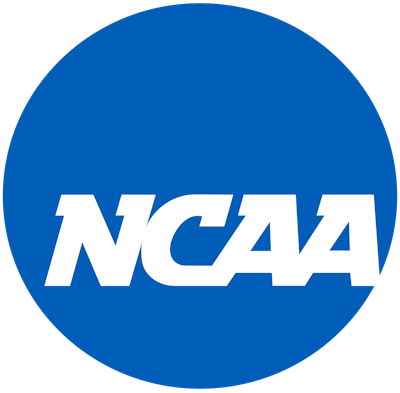
For Tiffany Alford, director of community engagement and inclusive excellence at Massachusetts Boston, this is her simplified pitch for Division III schools to participate in its recently launched Inclusive Leaders Program.
"Whether you are a representative of a minority group or not, we're all here for the student-athletes at the end of the day," Alford said. "Regardless of where your heart may be, you might be coming to it from a really positive place, you might be an inclusive person yourself and really champion DEIB, but it's not going to change the fact that there may be some who aren't. So how do you become that trusted place for student-athletes to feel safe with? And how do you take the lead in saying, 'This is important. I want to help you be better at this … because if we don't create inclusive spaces for student-athletes, they're going to stop coming?'
"I feel like we all miss out when we don't get diverse perspectives in our conversations, in our locker rooms, in our boardrooms. So be the change agent."
A membership initiative to advance the recruitment and retention of student-athletes of color, the program provides free two-hour workshops to Division III schools and conferences to help equip administrators and coaches better meet the needs of student-athletes around diversity, equity and inclusion issues.
The program is being led by Division III administrators and coaches. Specifically, 28 individuals from Division III schools went through a day and a half of training at the 2024 Convention in Phoenix to become facilitators. Alford is part of that group, which includes coaches, athletics directors and DEI-focused administrators. The facilitators are also spread out across the country to make the program as accessible to Division III members as possible.
To request a workshop, Division III schools simply need to identify and work with a nearby trained facilitator to conduct a workshop. The goals for program participants are:
- To identify strategies and best practices for institutions, and specifically head coaches and athletics department staff and administrators, to enhance their recruitment and retention of students of color.
- To recognize the importance of diversity, equity and inclusion in college athletics; learn common terms, definitions and concepts; and hear the often-unheard voices of student-athletes of color.
- To understand the involvement of the NCAA and Division III membership in advancing diversity, equity and inclusion and, more specifically, build racial equity knowledge.
"To have a system like this facilitator program not only leverages other experts who go through and become facilitators to come on to these campuses to help, but it also meets people where they are," said Jessica Brown, vice president for student affairs and athletics at North Central (Illinois) and chair of the Division III Diversity and Inclusion Working Group. "If this is not your bread and butter, that's great. There's a facilitator pool that can come in and serve in this capacity. So it's just really a diverse platform for people to use regardless of your comfort level around the topic."
Membership feedback over the past few years identified a need for such a program. The Division III Diversity and Inclusion Working Group, in collaboration with Return On Inclusion, a sport-specific diversity and inclusion consultancy and credentialing program, tailored that feedback to create this program specifically for Division III schools.
"The Division III Diversity and Inclusion Working Group worked tirelessly to take a membership concern and turn it into a new initiative for the division. The Inclusive Leaders Program allows coaches and athletics administrators to identify strategies and best practices to enhance their recruitment and retention of students of color," said Louise McCleary, vice president of Division III. "The NCAA and Division III are committed to diverse and inclusive environments, and the Inclusive Leaders Program is one initiative to support this fundamental core principle. With 28 recently trained facilitators, we are excited to bring this program to our Division III campuses and conference offices."
Former college basketball player Nevin Caple, founder and CEO of Return on Inclusion, said what makes this program unique is how membership-led it has been.
"The information gathered through focus groups and surveys allowed my team to examine structural and cultural barriers in Division III athletics. It was important to center the voices of student-athletes of color at every stage of development and provide tangible strategies for conference and campus leadership to address these barriers," Caple said. "It takes a certain kind of courage and compassion to square your role in athletics with a duty to lead inclusively. What sets this program apart is the facilitators, mostly Division III administrators, who have made a social and cultural commitment to acquiring the basic skills necessary to educate their colleagues on this topic. It was such an honor to work with individuals who believe so deeply in helping DIII navigate these barriers so student-athletes across all racial and ethnic identities can have the experiences they deserve."
While the learning objectives for participants are ideal markers, Brown said a primary goal for the program is simply participation. Any progress in this space, she added, is important.
"I just hope people participate," she said. "It can be a movement if people just participate, not even worrying about hitting all the learning outcomes from the workshop but just participating allows for more citizens in the world to have a different perspective. I think that's warranted and needed right now."
For those interested in becoming a facilitator, applications are open to attend the second facilitator training, which will occur June 4-5 in Indianapolis. Any nonstudent, full-time employee in Division III athletics (school or conference office) can apply via the NCAA Program Hub. The application deadline is April 15 at 5 p.m. Eastern time. The program will be limited to 30 participants.




































